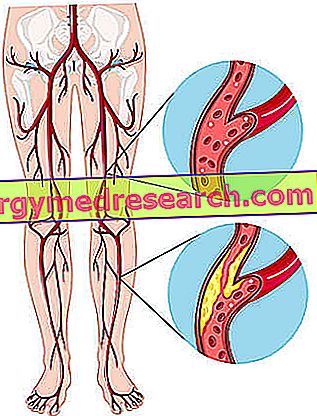Related articles: Graves' disease - Basedow
Definition
Graves' disease is a disease caused by the presence in the bloodstream of an antibody that stimulates the thyroid not only to secrete excess hormones, but also - in some individuals - to increase considerably in size (goiter). The high level of thyroxine can greatly accelerate the metabolism, leading to a series of symptoms and health problems. The disease is frequent in the female sex (4-5: 1) and in the third-fourth decade of life; it is the main cause of hyperthyroidism and is often a familiar one.Most common symptoms and signs *
- Alopecia
- Arrhythmia
- Asthenia
- Increased appetite
- Decline in sexual desire
- palpitations
- Diarrhea
- Exophthalmos
- Hunger
- Eyelid swelling
- Goiter
- Heat intolerance
- hypercalcemia
- Hyperglycemia
- hypertrichosis
- infertility
- Livedo Reticularis
- Thinness
- Nausea and vomiting in the early stages of pregnancy
- Nervousness
- Misaligned eyes
- Osteoporosis
- Weight loss
- Polyuria
- Intense thirst
- Sweating
- Tachycardia
- Tremors
- trichodynia
- Double vision
Further indications
In addition to those already mentioned, several people suffering from Graves' disease develop ocular symptoms, such as the characteristic exophthalmos (prominent eyes); this disorder is more common and severe among smokers. In some subjects, moreover, the so-called pretibial myxoma appears, characterized by redness, swelling and itching of the skin of the anterior lower part of the legs and the back of the feet.



